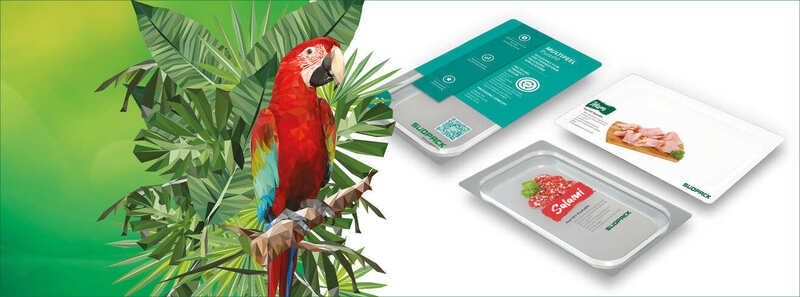CFIA 2024: sustainable Sudpack packaging solutions

For Sudpack, the CFIA is all about sustainability.
The French food industry’s leading trade show, which will be held from March 12 to 14 in Rennes this year, is considered one of the key industry gatherings in France with more than 1,700 exhibitors.
Sudpack will be at booth E1 in hall 10 to provide information about its resource-saving SPQ printing technology while also drawing trade visitors’ attention to the recyclable packaging concepts of its Pure-Line films. As another highlight, Sudpack’s new LCA tool will be a point of focus. It makes fact-based decisions possible for an optimal packaging solution in terms of its ecological impact.
With these three focal points at the CFIA, Sudpack will strike a chord because the pressure is steadily increasing on both French companies and on international suppliers who put packaging and packaged products on the market.
With SPQ (= sustainable print quality), Sudpack says it offers printing technology that sets standards in flexo and gravure printing. Most notably, SPQ significantly improves the carbon footprint of package printing. This is due in part to the standardisation of the colour space, which eliminates the need for spot colours. As a result, ink and solvent consumption are reduced as is ink waste.
With smart colour management, in-house calculations performed by Sudpack have shown that ink and solvent waste can be reduced at best by more than 60 per cent in the implementation of printed images.
The leader in technology and innovation now offers its customers around the world an unparalleled product range for a wide variety of applications. The range includes not only PP-based materials, but also PE and PET concepts. The mono-material film laminates impress with their low material consumption and recyclability. At the same time, they provide the same product protection as composite materials composed of different polymers and can be equipped with convenience features such as reclose systems or peelability.
Thanks to the implementation of its life cycle analysis tool last year, Sudpack is now able to analyse the entire life cycle of packaging solutions in terms of their environmental impact and to evaluate it based on solid facts. In addition to green-house gases (CO2e), additional environmental impact categories are also taken into account. This includes the fossil energy use that a material involves as well as the ecotoxicity and human toxicity, meaning the toxic effect on animals, plants and people. For the calculation, Sudpack uses a cradle-to-grave approach that also takes different end-of-life options into account within defined system limits.
Related content
Source: foodanddrinktechnology.com

